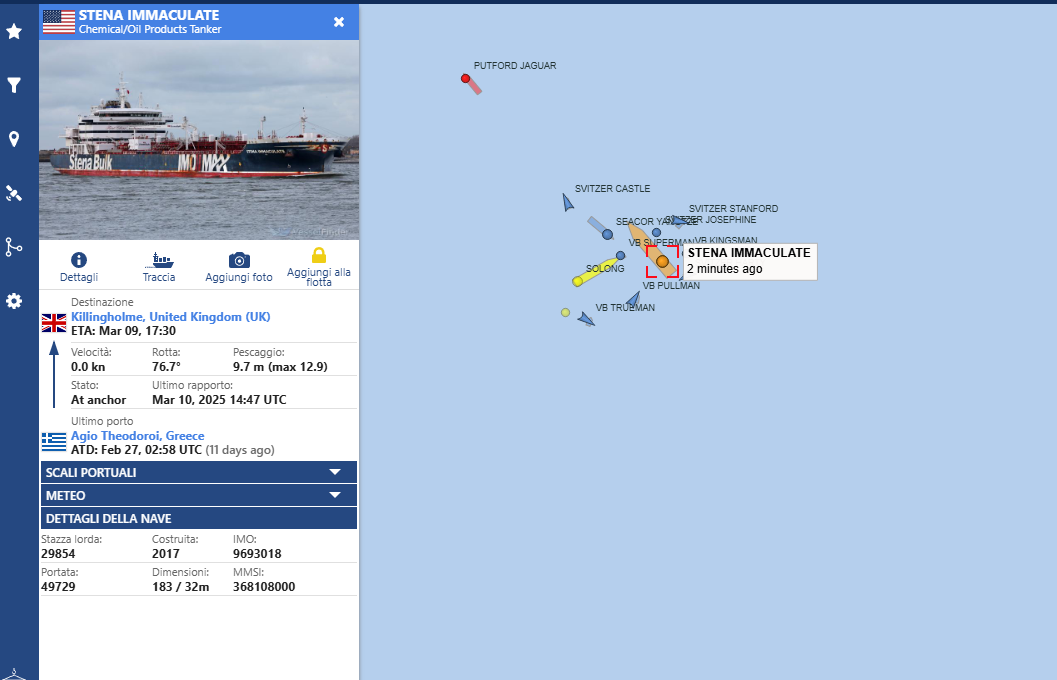According to reports, the Stena Immaculate, a U.S.-registered oil tanker carrying Jet A1 fuel, was struck by the MV Solong, a Portuguese-flagged container ship. The collision happened while the Stena Immaculate was at anchor, making the impact even more severe. The cause of the collision is still under investigation, but early reports suggest adverse weather conditions and possible navigational errors.
Fire and Abandonment
The impact resulted in a massive fire engulfing the Stena Immaculate, which was loaded with highly flammable jet fuel. The crew of both vessels had to abandon ship as flames spread rapidly, making any containment efforts impossible. Search and rescue operations are currently underway to ensure all crew members are accounted for and safely evacuated.
Strategic Importance of Stena Immaculate
The Stena Immaculate is not just any oil tanker; it is one of ten vessels included in the U.S. Department of Transportation’s Tanker Security Program (TSP). This program is designed to ensure fuel delivery to the U.S. Army during conflicts or national emergencies. The vessel's involvement in this security initiative makes this collision particularly concerning from a strategic standpoint.
Possible Ramifications
Given the tanker’s sensitive cargo and its role in U.S. military logistics, this incident could have significant geopolitical and economic implications. The potential environmental impact of spilled jet fuel in the North Sea is also a matter of urgent concern. Authorities in the UK and international maritime agencies are currently assessing the damage and preparing contingency plans.
Previous Context: U.S. Sanctions on Oil Transport
This collision comes shortly after the U.S. imposed sanctions on over 30 individuals and vessels involved in the transportation of Iranian petroleum, targeting oil brokers and tanker operators in multiple countries. While unrelated, this highlights the ongoing geopolitical tensions surrounding global oil transport.
Investigation and Response
As of now, the cause of the collision is under investigation. The U.K. Maritime and Coastguard Agency (MCA) and other relevant authorities are monitoring the situation closely. Given the scale of the incident, it is likely to prompt discussions on maritime safety regulations, security protocols, and environmental risk management for high-risk cargo vessels.
This developing situation underscores the importance of stringent maritime navigation standards, emergency response preparedness, and international coordination in handling critical incidents at sea.


Comments
Post a Comment